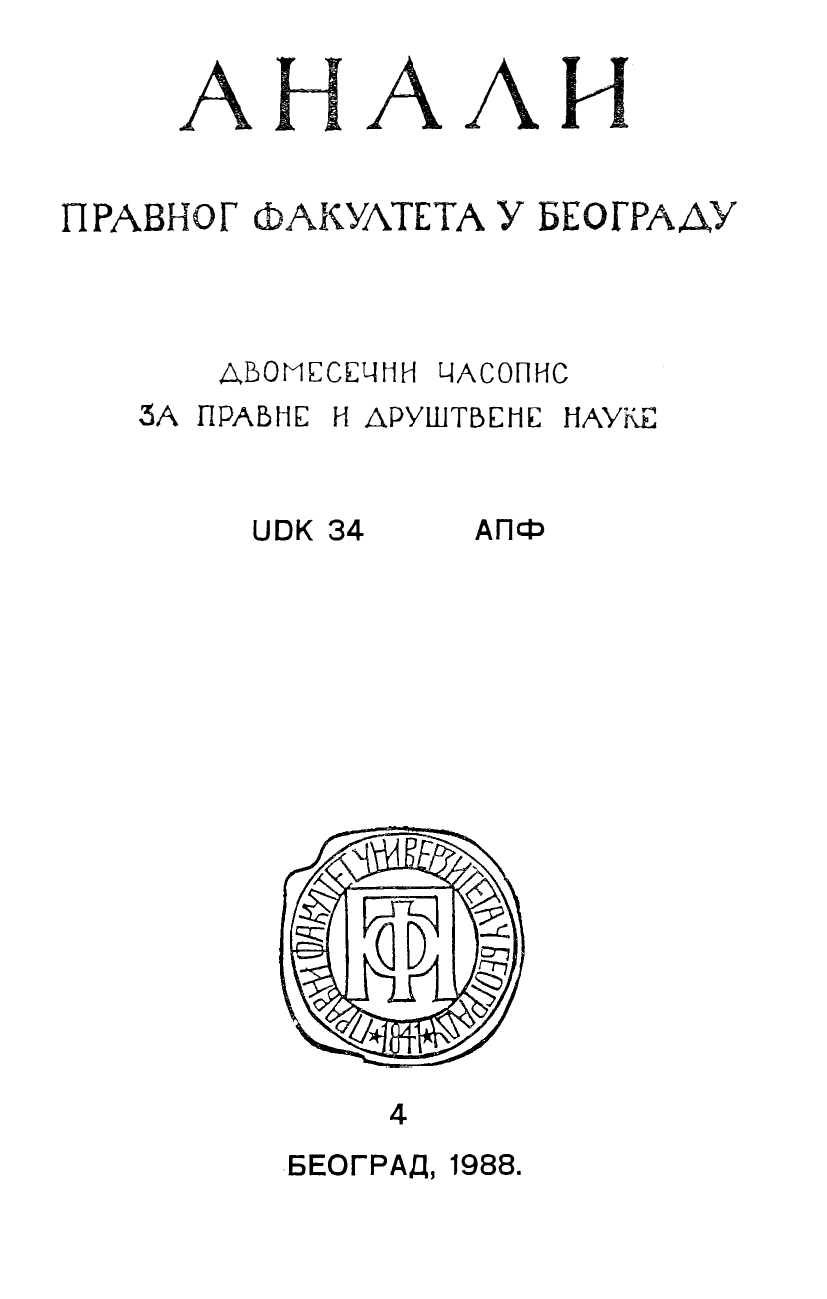КРИВИЧНО-ПРАВНА ЗАШТИТА ПРИВАТНОГ ЖИВОТА
CRIMINAL LAW PROTECTION OF PRIVATE LIFE
— The Right to Voice —
Author(s): Zorica Kandić-PopovićSubject(s): Law, Constitution, Jurisprudence, Criminal Law
Published by: Правни факултет Универзитета у Београду
Summary/Abstract: The right to private life is a particular individual right, whose protection is emphasized recently. One of the grounds for that is the development of scfisticated technical possibilities which open the way to various forms of indiscretion or intrusion into pi-ivate life. These are means of eavesdropping, sound recording, recording of picture, as well as computer devices which make possible automatic processing of data and informations, as well as open the problem of misuse, namely of unauthorized disposal of data related to individuals. Such technical challenges have imposed the need of criminal law protection of essential aspects of the right to private life, which include the right to voice. The comparative analysis of criminal law provisions point at the fact that the right to voice includes two essential dimensions which are the subjects of protection. The first one and the one most frequently present in the majority of legislations is the dimension of protection of secrecy of oral communication. In a small number of legislations another dimension of protection is provided which includes sonorous picture of an individual, with the emphasis at preserving the" right to particularity, namely authenticity. Controversial issues have arosen in criminal law theory and judicial practice which are related to the first dimension of protection of the right to voice, which include the specific problem of the principle of regulating the right to secrecy of oral communication in the criminal sphere. Some solutions in legislation point at the restrictive principle in such protection, since the moment of violating of private life is connected to specific contents by way of unauthorized eavesdropping or sound recording, and not to the very" act, namely unlawfull act. Such a conception, which is particularly emphasized in French criminal law system, provokes controversies in theory, but courts, while following the intention of the legislator, are opting firmly for such restrictive conception. Solution found in Yugoslav criminal legislation in the above respect is somewhat inconsistent. Thus, on the one hand, the secrecy is protected of oral communication in the sphere of private life, which naturally includes the opinions and stanдрoints of individual, while, on the other, there exists a verbal political offence in relation to the one who „maliciously and falsely speaks of socio-political conditions in the country”, which, as a stanдрoint or an opinion is communicated to someone. In such a way the principle of restrictive protection of oral communication is somewhat changed, which is a solution different than the one found in French system. On the other hand, there exist barriers in the practical realisation of protection of the right to secrecy of oral communication, which are not connected to traditionally difficult' evidence as to the existence of such offences, but also to other, wider grounds which make possible the ,,non-implementation of law”.
Journal: Анали Правног факултета у Београду
- Issue Year: 36/1988
- Issue No: 4
- Page Range: 369-385
- Page Count: 17
- Language: Serbian

